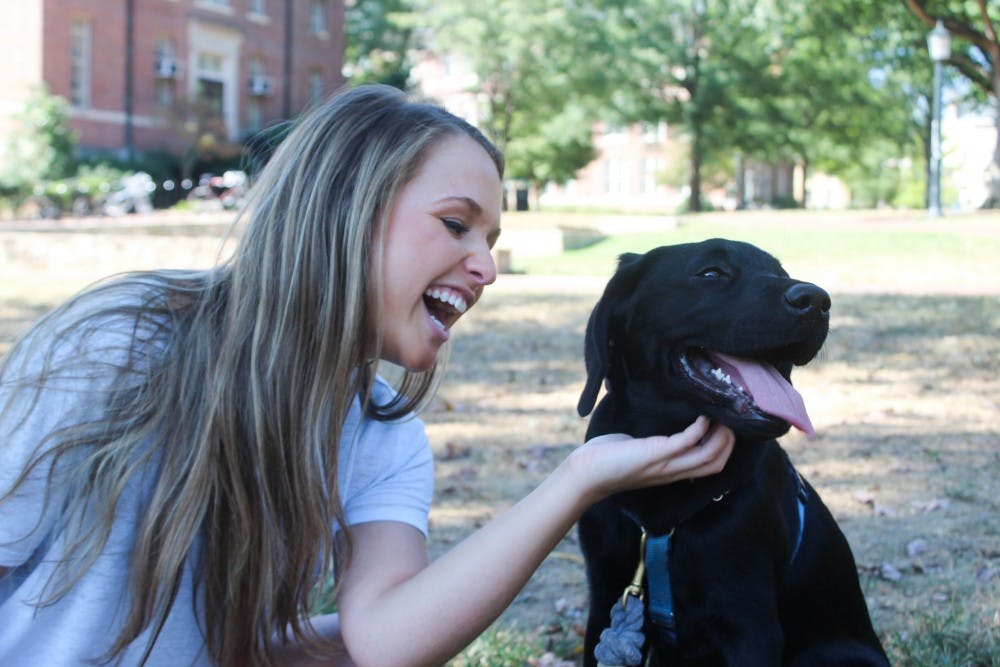Sometimes going to a university with the academic rigor and competitive atmosphere of UNC can feel like a dog-eat-dog world — but some students say that man’s best friend helps ease the stress of student life for them.
Junior Ashley Young and her roommate Rylie MacKinnon started fostering Dean, a now four-month-old black lab, in August. Dean is in training to become a service dog through Eyes Ears Nose & Paws (EENP), and Young said he is already proving himself to be a wonderful companion.
“As soon as we got Dean, it was by far one of the best things that could’ve happened to me. Even though he’s not a service dog yet, he’s so therapeutic,” Young said.
Young said Dean is most helpful to her as a student because of the time she has to devote to him as a fosterer. She takes Dean outside at least once every two hours, which serves as a healthy break for her from homework and studying.
For some, the process of fostering a shelter pet is two-fold: both the animals and the college students benefit from the process. A 2015 study conducted at the University of Maine showed that interactions with dogs elevate college students’ moods and decrease their anxiety levels. Students at Stephens College are rewarded for fostering and finding a permanent home for pets through a scholarship program.
“From what I’ve experienced with the UNC students, it’s a good way to allow someone who might want a dog, but doesn’t want to commit to getting a dog and having it for 10 to 12 years. It’s a good stepping stone for people to try having a dog before committing to having a full-time pet,” Julie Remensperger, a volunteer coordinator for EENP, said.
Before becoming a full-fledged service dog, Dean and other dogs will be trained by inmates as part of EENP's “At Both Ends of the Leash” program. The program encourages inmates to develop interpersonal and leadership skills by training service dogs. EENP also assists inmates with reentry into society after their incarceration.
Remensperger said EENP is a loving community for the dogs, fosterers and inmates who eventually take over the training and caring for the foster dogs.
“Al, who was our lead dog trainer for a few years, he came straight out of our prison program, and he worked here for two years," she said. "It’s a really strong community, and we helped him with finding a place to live and giving him resources that he was going to need when he got out.”



